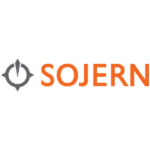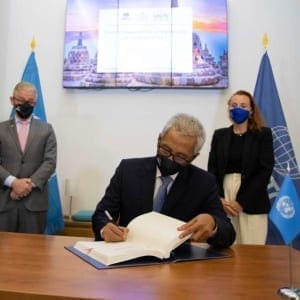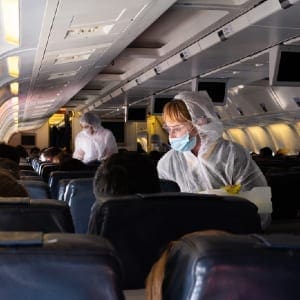By Kaitlin Dunn, Writer, Hospitality Sales & Marketing Association International (HSMAI)
The HSMAI Foundation and HSMAI Europe hosted a virtual Executive Roundtable for hotel chief human resources officers across Europe on Sept. 16 to discuss current and potential future challenges they are facing in the new world of COVID-19. J. Bruce Tracey, Ph.D., editor of Cornell Hospitality Quarterly, professor of management at Cornell University’s School of Hotel Administration, and member of the HSMAI Foundation Board of Trustees, facilitated the discussion. HSMAI Americas hosted a similar roundtable June 14, while HSMAI Asia Pacific hosted one on Aug. 19.
 Participants shared their unique experiences during the pandemic. Here are key takeaways from their discussion:
Participants shared their unique experiences during the pandemic. Here are key takeaways from their discussion:
Several roundtable participants said that they have been feeling much more pressure during the pandemic due to their elevated responsibilities. “I never worked this much in my entire life,” one participant said. “I’ve been working 24/7, trying to be there for everyone. I almost collapsed because I never sleep anymore.”
Another participant said that their company is still struggling financially. “We were not that far from bankruptcy,” the participant said. “We needed to pull the brakes as hard as we could and terminate as much as possible. Our decision was to terminate now, and then it’s easier to hire people back once we see that the business goes up again. Also, for the employees it was better to do a massive termination, instead of laying off a few people every week or month, to make them feel less alone.”
Participants said that they are also concerned about employees’ mental health and keeping them employed. “Our biggest concern right now is keeping the few talents we have left,” one participant said, “because we are so dependent on them staying.”
POSITIVES
Despite all of the issues the hospitality industry is facing, participants agreed that there have been some good things to come out of the pandemic as well. “I’m very optimistic that everybody out there in the entire world will at least have learned something,” one participant said. “Hopefully everyone has a little bit of a hunger to learn more and to take self-responsibility for the little environment that you are in, starting from your family, to your organizations, to the world.”
Agility was mentioned by nearly all of the participants as being one of the best things to come out of the crisis. “The decision-making process has moved from being quite rigid to so quick and efficient that it was a total relief for everyone in the company,” one participant said. “Some decisions were made in a couple of hours, when before it would have literally taken months.”
“We were already quite agile as a company and very flexible and also small, but there were always a lot of things that delayed processes a little bit,” another participant said. “But what happened was, our teams, even though they were not present in one room and had 5 million meetings, they started to collaborate in an amazing way. In a couple of weeks, they produced stuff that in a normal time would have taken much, much, much longer.”
Several other participants agreed that the new environment has helped to brings teams closer together. “I think that, ironically and counterintuitively, even though we’ve all been working remotely, we became more collaborative,” one participant said. “We were more attentive to people trying to detect any issues.”
Other participants said that the freedom to redesign the structure of organizations is a huge positive that has emerged. “There are no hierarchies anymore,” one participant said. “There are no structures and no silos. We have the opportunity to build everything up again in a different manner. From an HR perspective, that is very exciting and I am looking forward to that.”
LOOKING FORWARD
Roundtable participants also shared the lessons they have learned from the pandemic as well as predictions for the future. “I’m totally positive, because I think we learned so much, and we learned new skills, every one of us, as an organization or also as an industry,” one participant said.
“We just need to rethink,” another participant said. “We found that we need to be very creative, very smart, and do things differently, and start being agile and applying things that other companies do.”
Another participant said the pandemic has accelerated the acceptance of home offices, and that they believe it will help people restructure their jobs in other ways as well. “What I believe will happen,” the participant said, “is that many people will say, ‘Why do I have to work five days a week? Why do I have to actually do only one job? Maybe I work three days for this organization and have another job with another organization, because I don’t want to risk becoming redundant.’ These are things that I see coming, and I think this is a great opportunity for our industry.”
Several participants said that they are most concerned about continuing to maintain engagement and support for employees if the pandemic stretches out even longer. “How do we maintain the ‘why’ for people?” one participant said. “How do we continue to make sure they know why they’re still working here? We don’t have the brutality of what we went through in March and the situation is becoming more normal, but even if it’s not, how do we maintain engagement and make sure we’re not too transactional?”
Another participant expressed concern that the levels of flexibility and agility that have risen over the past few months are starting to go away, but remains hopeful that the culture will evolve to be consistently innovative and flexible. “I can see this agility disappearing,” the participant said. “The environment pushed us to be agile because we didn’t have a choice, but now that’s changing. However, the company is digesting this and there’s a willingness to change and adapt, because it was something that everybody appreciated. People are putting together processes and frameworks to leverage the agility we gained.”
HSMAI Foundation: The mission of the HSMAI Foundation is to elevate the overall caliber and performance of sales, marketing, and revenue optimization professionals in the global hospitality industry by driving initiatives that will attract new talent, develop emerging talent, and engage existing talent. Learn more here.
HSMAI Europe: The Hospitality Sales and Marketing Association International (HSMAI) Region Europe is committed to growing business for the hotel, event and travel industry and their partners, and is the industry’s leading advocate for intelligent, sustainable revenue growth on a local, national and European level. The association provides practical tools, insights, and cutting edge expertise to enable knowledge sharing and enhance professional development as well as fuel sales, inspire marketing, transform businesses digitally and optimise revenue. Learn more here.















